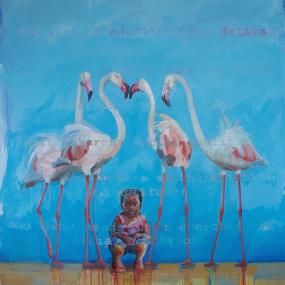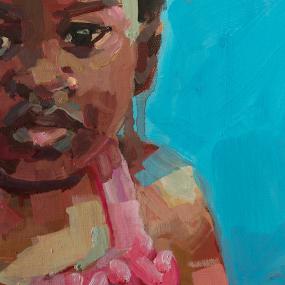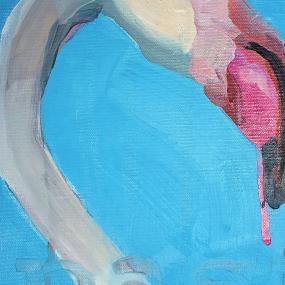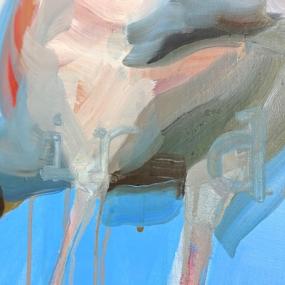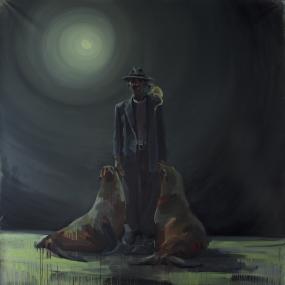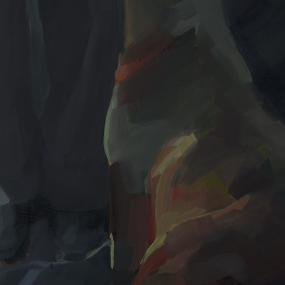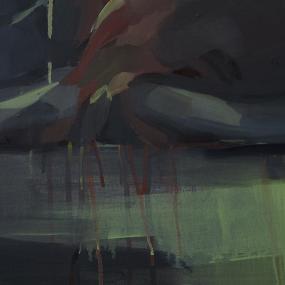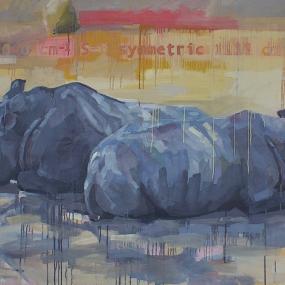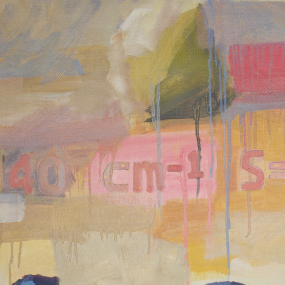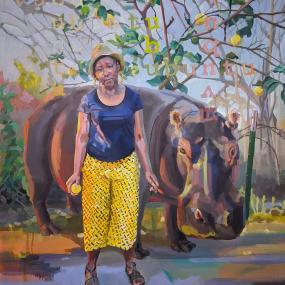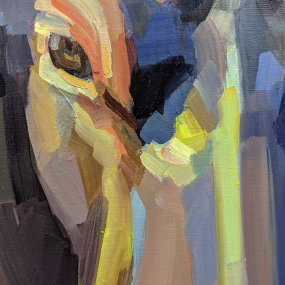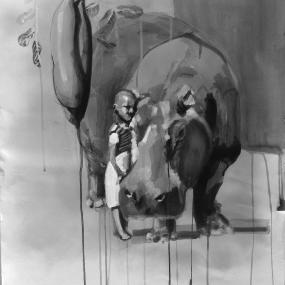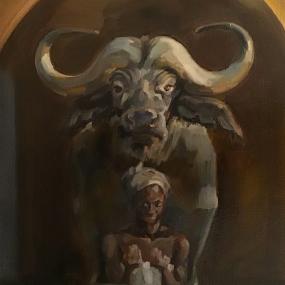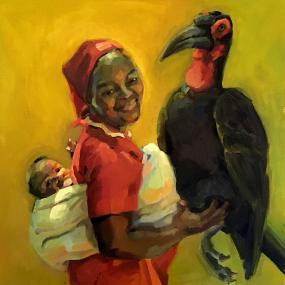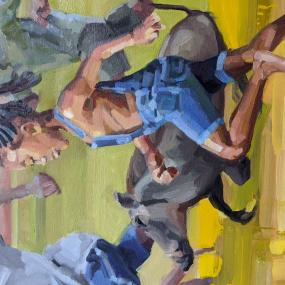“I am because we are.” --Bishop Desmond Tutu’s translation of ubuntu.
The extensive network of fenced-off private and public nature reserves in South Africa’s poorest province, Limpopo, is a continued form of apartheid. The separation is between the charismatic megafauna within and the impoverished settlements without. Although the animals still roam their symbolic realm and run wild in their dreams, the local inhabitants rarely ever even see them. Only tourists can afford to safari, and the gatekeepers profit.
This work from Africa does not depict suffering but premises a symbolic realm where the longing for wholeness, even perhaps with things antithetical, can be real. Simple fictions of accompaniment in day work and day dreams—playful, mysterious, absurd, violent—inhabit vulnerable and indeterminate spaces. Text from apartheid and other documents haunts and complicates an easy relationship with the imagery. Some of these dreams recapture symbolic power through proximity and painterly integration, while others express remorse and wrong. Through the technique of disruptive realism, they provide a longed-for connection with things distant, lost or removed. They each allow the viewer to perhaps question the impossible, to perhaps feel interdependence, and to perhaps participate in healing.
